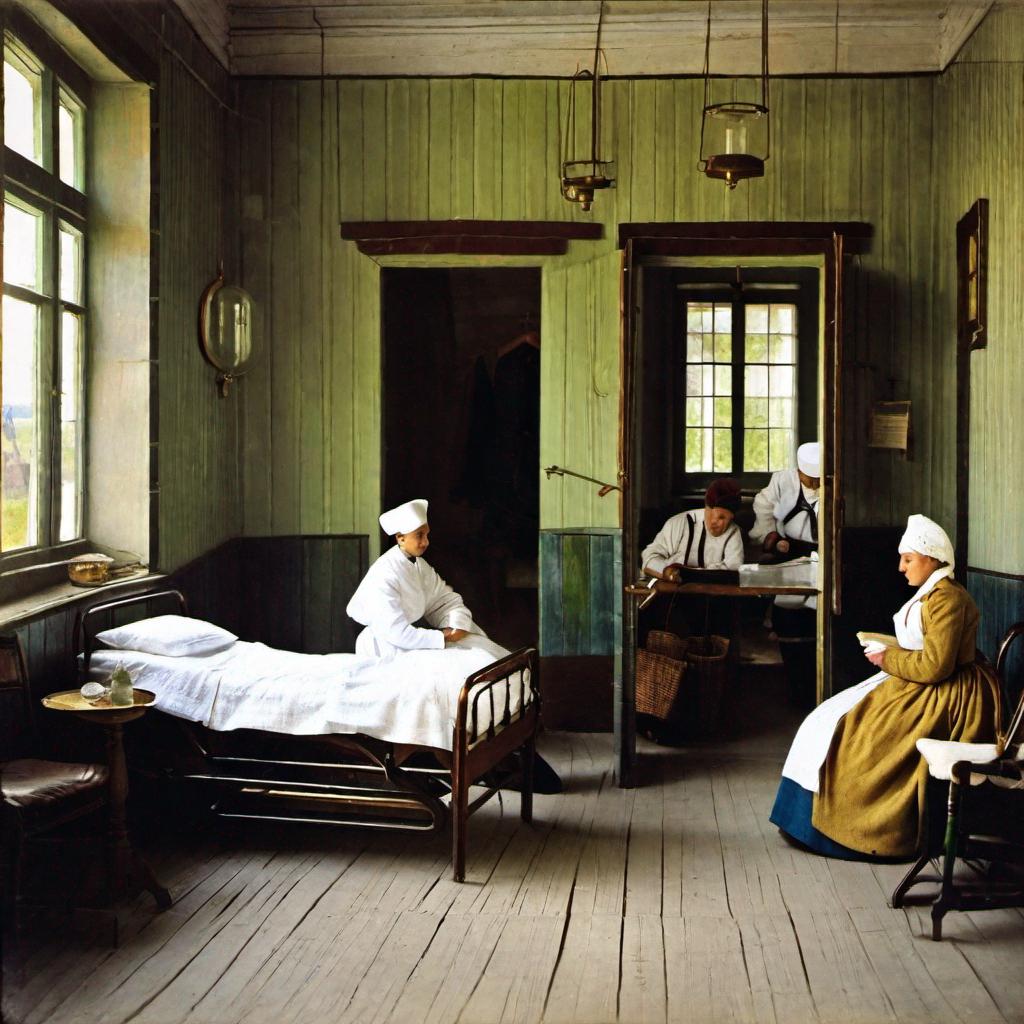Medicine Along the Volga: Practices from 1700 to 1900
The period spanning 1700 to 1900 was a time of great change for the communities living along the Volga River. In addition to political shifts and migrations, the realm of medicine also witnessed substantial evolutions.
In the early 18th century, medical practices in the Volga region were primarily rooted in traditional folk medicine. Local herbs, plants, and natural remedies were the primary tools against illnesses. These treatments were passed down through generations and were deeply ingrained in the community's beliefs and practices.

The arrival of the Germans, particularly the Volga Germans in the 1760s, brought with it new medical practices and beliefs. The settlers introduced more Western European medicinal knowledge, which sometimes clashed, but often merged with local traditions.
By the 19th century, with the advent of modern medical science, the Volga region began to see the establishment of more formal medical institutions. Hospitals, clinics, and apothecaries began to sprout, especially in more urbanized areas. These institutions, while influenced by European medical advancements, still bore the mark of local traditions and practices.

Vaccination, which became a revolutionary practice in the world of medicine, slowly made its way to the region. The smallpox vaccine, in particular, became crucial given the periodic outbreaks of the disease.
However, skepticism towards new medical practices was still prevalent. Many in the Volga communities remained wary of these 'foreign' methods, preferring to rely on time-tested traditional remedies and spiritual healing practices.
Towards the late 19th century, as communication and transportation improved, the Volga region saw a greater influx of medical knowledge and practitioners from both Europe and other parts of Russia. This led to a more integrated approach to medicine, blending both traditional and modern practices.
In conclusion, the period from 1700 to 1900 along the Volga River marked a fascinating transition in the realm of medicine. From deeply rooted traditional practices to the dawn of modern medical science, the region's medical history mirrors its broader socio-cultural and political transformations.